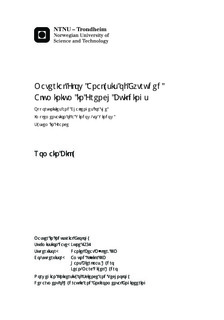Material Flow Analysis of Extruded Aluminium in French Buildings: Opportunities and Challenges for the Implementation of a Window-to-Window System in France
Abstract
As environmental considerations start playing a major role in consumers choices, aluminium recycling becomes an increasingly important topic: indeed, remelting aluminium requires about 5 to 10 % of the energy used for primary production (Quinkert et al., 2001). However, scrap from wrought alloys is more and more used by refiners to produce secondary foundry alloys, which increases the share of primary aluminium in extrusion billets. Besides, a significant fraction of scrap is nowadays leaving Europe to developping countries, limiting the future potential for urban mining in the developed world.Therefore, the W2W project is a pilot case to test in France the implementation of a different end of life management strategy, whose objective is to reuse building joinery scrap to make new extruded products. For this project to be successful, pre-sorting at the beginning of the collection process is paramount: otherwise, separating high quality wrought aluminium alloys from mixed scrap becomes a challenge.The cycle of extruded aluminium in buildings and the current scrap availability in France have been studied using Material Flow Analysis (MFA). To build the model, data have been collected from Hydro internal sources and site visits. The scrap availability and the in-use stocks of extruded aluminium in buildings have been assessed using dynamic stock models based on historic production figures and assumptions on the average lifetime of products. Scenarios on the future production have been studied to estimate the future evolution of these figures.The models predict yearly outputs of post-consumer scrap from aluminium joineries of about 30kt/year, among which 10 kt/year should be reusable for the production of new billets. These numbers have been examined using the tools of sensitivity and uncertainty analysis. Finally, the critical topics for a successful implantation of the W2W project are logistic issues, economic and technological feasibility and the consequences on the different stakeholders.
